Netflix's extraordinary exclusive series Black Mirror recently released its fourth season, and it's premiere episode, "USS Callister", is already being praised around the internet for its spectacular deconstruction of toxic fandom and male-entitlement power fantasies. It deserves every bit of that praise. Jesse Plemons is also deservedly earning plenty of praise for his incredible performance as both a nerdy creeper and for his spot-on Shatner send-up. But Black Mirror, as a series, is so good, in part, because it works on many, many different levels. So I wanted to spend a bit of time praising the episode for some of its other concepts that are getting less attention in the mainstream.
Jesse Plemons puts on a masterful performance as a nerdy office creeper and a spot-on Shatner send-up.
Before I do that, I want to start by saying that I love Black Mirror as a series. It's a modern-day Twilight Zone with a specific focus on the social impacts of technology, and dire warnings about their dangers. Yes, it's pessimistic, but it's bloody brilliant! I haven't sat down to watch every episode yet, and have only seen a handful of episodes from the first three seasons and the season four premiere. That being said, the show's second episode "Fifteen Million Merits" is one of my favorite pieces of television ever. "The Entire History of You", "Be Right Back", and "San Junipero" are also some of my favorites so far.
These episodes (along with "USS Callister") work so well for me because they do such a fantastic job of world-building -- at least, when they are not unrealistically pretending that memories and personality can be replicated from DNA, which is a major (almost story-breaking) stumbling block for Callister. These deep, nuanced worlds create many levels of commentary to unpack. "Fifteen Million Merits" focused on reality TV and pervasive advertising, but it also has some scathing warnings about a culture of body-shaming, obsession over digital merits (read: XBox Live and Steam Achievements), and how corporate avarice could turn a post-scarcity economy into an absolute dystopia.
A friend of mine highly recommended "San Junipero" to me on the grounds that it's a more optimistic episode than many of the others -- even having a happy ending. But my takeaway was not a "happy ending" at all. The fairy tale ending hides a sinister metaphysical question that the text of the episode mostly sidesteps: the mind-body problem. Is the avatar of a deceased person living in San Junipero really that same person? Or merely a copy? Are they one power failure away from being snuffed out of existence? Are people committing suicide based on misinformation from a multi-billion dollar corporation promising that they can live forever in a simulated reality?
Black Mirror's exceptionally well-thought-out worlds always leave sinister nuances to unpack.
"USS Callister", on the surface, appears to be entirely about toxic fandom (along with male entitlement). It is absolutely about that, and it does a fantastic job of presenting it. As a Star Trek fan, I also enjoyed the deconstructive elements about Trek tropes and the unrealistic reverence that fans hold for the series and its established canon. As someone who blogs about Star Trek, Star Wars, video games, and other fanboy topics, I am certainly a target of at least some of this episode's criticism.
As someone who works in the software industry, I recognized the episode also taking swipes at the cult of personality attached to tech moguls like Mark Zuckerberg, Jeff Bezos, Elon Musk, Bill Gates, Steve Jobs, Gabe Newell, and others, and the idea that they may be taking credit and profiting on other people's work, and becoming filthy stinking rich at the expense of the consumers who mindlessly use and venerate their products, all with willful disregard for how those products may be misused. As someone who can't wait to put myself on the waiting list for a Tesla self-driving car, I'm also well within the cross-hairs of that line of commentary... [More]
75a819a5-da6e-4b26-8c2f-fe641b289a76|0|.0
Tags:Black Mirror, Netflix, streaming television, Jesse Plemons, science fiction, anthology, USS Callister, Star Trek, the Twilight Zone, Westworld, technology, artificial intelligence, video game, mind-body problem, ethics, toxic fandom, toxic masculinity, male entitlement, cult of personality, sexism, gender
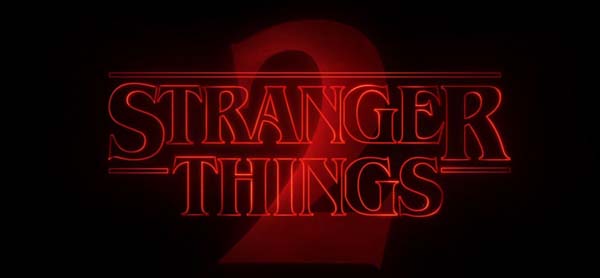
The first season of Stranger Things was a mysterious and intriguing piece of television that successfully channeled an eclectic collection of 80's and 90's nostalgia (from E.T. to Stephen King to The X-Files to Dungeons and Dragons). Instead of being a cynical piece of derivative nostalgia bait (or an outright cash-in on established intellectual property), Stranger Things somehow felt wholly fresh and original.
Unfortunately, season 2 lacks a lot of that mystery and originality that made it's predecessor work so well. Season 2 just feels too familiar. We already know about the Upside Down, and the Demogorgon, and Eleven's psychic powers, and the secret government research lab conducting shady experiments. None of that can really carry the show anymore. But that's about all that season 2 has. There's nothing very new. There's no surprises.
The introduction of a new girl creates tension within the group.
Compounding this problem is that plot points and set pieces feel recycled from last season. Most are inverted in some way, as if they are Upside Down reflections of the previous season's events. But that isn't nearly as clever as the wordplay might make it sound. For example, there's a sub plot of tension among the boys because a new girl has entered their group. This time, it's Max instead of Eleven, and it's Mike who's unhappy with the new dynamic of the group instead of Dustin and Lucas. Midway through the season, there's a set piece in which Will draws a bunch of pictures and hangs them up all over the house. It feels like a repeat of Joyce hanging up the Christmas lights, except that it's Will trying to communicate with the Upside Down instead of Joyce trying to communicate with her son. And the group even takes in another stray and tries to hide it; except this time, it's a baby demogorgon instead of Eleven.
There's a sort-of new monster in the form of the "Shadow Monster" that haunts Will. This shadow monster, however, doesn't really do anything, and we're left with only the army of dog-like demogorgons. It takes an approach similar to James Cameron's Aliens , in that it multiplies the number of monsters, gives them a "nest", and adds some big "queen" that seems to be controlling everything. This comparison is driven home by the shadow monster's resemblance to a ghostly xenomorph, and the inclusion of a scene that was basically pulled straight from Aliens (right down to the beeping motion detectors). But unlike Aliens , I never felt threatened by the surplus of demogorgons, and the Upside Down never seemed as mysterious as the xenomorph hive or their horrifying queen.
The "Shadow Monster" is a threat that never really pays off -- at least not this season.
While the first season didn't revel in sudden character deaths for the sake of shock value like Game of Thrones , the sudden death of Barb midway through the season did manage to raise the stakes for everyone else. Season 2 has nothing like that. There's no sudden or unexpected deaths of any characters who aren't obviously disposable from the moment they arrive on scene. And even among the cannon fodder characters, the death count is still ridiculously low... [More]
0f5034ae-53fd-4a38-8c01-c631eb8cbe1a|0|.0
Tags:Stranger Things, Netflix, streaming television, horror, thriller, science fiction, monster, parallel dimension, upside down, Twin Peaks, Stephen King, Silent Hill, Otherworld, E.T., Stephen Spielberg, the X-Files, Dungeons & Dragons, Ghostbusters, Aliens, 1980s, 1990s, nostalgia, Gaten Matarazzo, David Harbour, Sean Astin
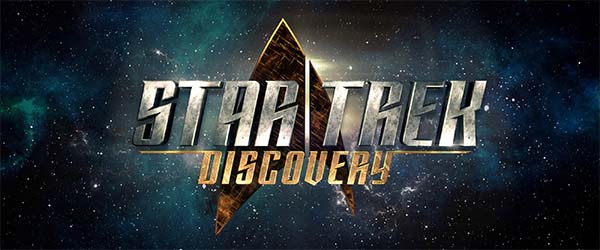
After a myriad of false starts, delays, production problem, bad PR, and generally negative expectations, Star Trek: Discovery finally premiered at the end of September. And the general consensus online seems to be pretty positive. It's not going to be the anthology series that I'd hoped for, but I didn't hate the first two episodes. I really didn't like them either, though.
Based on the season preview following the end of the second episode, it seems like it's kind of hard to gauge the series after just the first two episodes. They seem like more of a "prologue" to the main story, rather than part of the main story itself. These first two episodes take place on a different ship, with a different captain and crew, and a different situation than the rest of the show. So I don't know how representative they are going to be of the series itself.
The first two episodes see Captain Georgiou killed and the Shenzhou destroyed.
It seems a bit disingenuous (to me) for CBS to air only the first episode and then expect us to shell out $6 a month for the rest of the season. The first two episodes seem like they should have been the bare minimum, but three would have been even better, just so that audiences could see what the series proper is going to look like. Ideally, they should have aired the entire first season and then moved subsequent seasons to the streaming service. As it stands, I still don't trust the show enough to feel inclined to spend the money on a subscription. After all, it could be that the first few episodes were conceived under the direction of Bryan Fuller, and his spat with the studio, and subsequent departure from the project, could have lead to a radical change in direction for later episodes. But then again, those creative differences apparently cropped up before filming the premiere even started, so who knows how much of Fuller's creative vision even survived at all (despite the fact that he's credited as the creator and lead story writer in the opening credits).
Maybe I could pay for one month (or do a free trial) and then binge the entire rest of the series?
Anachronisms, and apparently space is no obstacle
Right off the bat, I had a lot of the knee-jerk reactions that I was expecting to have due to uniform anachronisms, costume and makeup redesigns, and so forth. CBS went to the trouble to recreate phasers and communicators that resemble the ones from the original Star Trek pilot, and apparently even made Klingon blood pink (ala Star Trek VI), but they couldn't be bothered to design ship-specific insignia badges for the uniforms? Everybody wears the delta-shield, which was supposed to be an emblem unique to the Enterprise. It was only adopted as the symbol of Starfleet (as a whole) later, in part because of the increased militarization of Starfleet due to the threat of the Klingons, and in honor of the Enterprise's service.
Just as I'd feared, everyone is wearing the same delta shield insignia.
And in the interests of fairness to the new Star Wars movies, I also can't neglect to mention the problem that the Discovery premiere had with distance... [More]
3f1397f1-d2ca-443b-95ee-d0cad5d4422f|0|.0
Tags:Star Trek, Star Trek: Discovery, science fiction, CBS, all access, streaming television, Bryan Fuller, Sonequa Martin-Green, Michael Burnham, Sarek, James Frain, Vulcan, human, Klingon, war, Shenzhou, Philippa Georgiou, Michelle Yeoh, T'Kuvma, Chris Obi
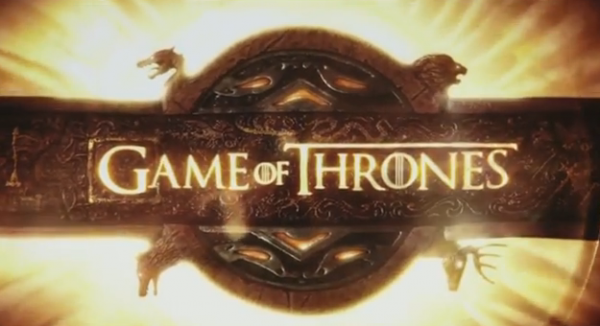
I recently wrote an analysis of Game Of Thrones' fifth season. I had originally planned to include some speculation about the sixth season, but it wasn't really relevant to the point of the article, which was to describe the themes present in the season. So for the sake of brevity, I moved that speculation to a new post.
What season five does very effectively is to blur the lines between heroes and villains and establish a series of new external threats to entrenched powers and factions. And the self-implosion of the Lannisters, Stannis, Boltons, and the crossing of the Wildlings leaves the Seven Kingdoms vulnerable to the internal strife that made the first few seasons so compelling. In addition, we may finally see a genuine power stuggle across the Narrow Sea.
The stage has been set for power stuggles to take place - not just in King's Landing - but throughout the entire world.
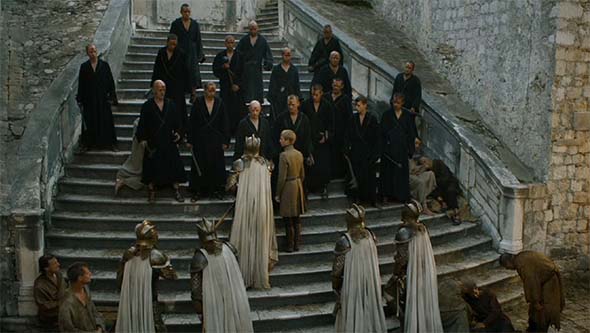
The Lannisters' authority in King's Landing is now being threatened by multiple sources,
including the High Sparrow's cult witch hunts [PICTURED] and the Tyrells and Littlefinger.
CAUTION: THIS POST CONTAINS MAJOR SPOILERS FOR THE FIFTH SEASON [More]
8d5b1285-fb27-4378-b7d3-776660597f94|1|3.0
Tags:Game of Thrones, HBO, Home Box Office, streaming television, Cersei Lannister, Daenerys Targaryen, Tyrion Lannister, John Snow, Jamie Lannister, Ellaria Sand, Ramsey Bolton, Margaery Tyrell, Little Finger, High Sparrow, White Walkers, The Mad King, Aerys II Targaryen
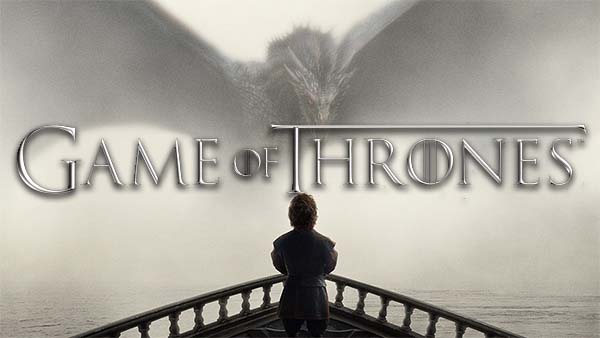
I've been seeing a lot of mixed reaction to the most recent season of HBO's Game Of Thrones (season five). Many sources on the internet have referred to it as the slowest and most boring season of the series so far. And episode six (Unbowed, Unbent, Unbroken) has been reviled as one of the worst episodes of the series due to the sexual assault of poor Sansa. Anecdotally, the people who I know who watch it (including my girlfriend, who got me into the show to begin with) have been disappointed by the apparent uneventfullness of this season. Another friend even said he was likely going to give up on the show completely because he's sick of the show dragging on and then suddenly doing things apparently only for shock value. I think his reaction is a bit extreme.
On the other hand, this season's eighth episode, Hardhome has been received as the best episode of the series so far.
But now that the season is over, and the shocks have been given, it puts the entirety of the season into perspective - at least for me.
The whole of Game of Thrones' fifth season has an over-arching theme of fatalism and futility. And the final episode shifted both of those themes to full-blown self-implosion. Every major character in every theater of operations made very self-destructive choices. And they all suffered for it, and those that survived will continue to suffer into season six. This season also may have shifted long-standing opinions on who are the favored characters and factions, which could be a deliberate attempt to ramp up the tension for a more conflict-filled sixth season.
Season five started with numerous characters and factions at the height of their power. Daenerys, Stannis, Ramsey, and John Snow all had enormous successes at the end of season four and start of season five. The Lannisters may have suffered a severe blow at the end of last season, but their grip on King's Landing was still firm at the start of season five. They all manage to blunder these successes into utter failures by the end of season five.
Probably the most immediately obvious case of self-destruction is Stannis. While most of the season looked as though he was putting himself in a position of strength and was primed to recapture Winterfell, he was also falling victim to the classic Napoleon / Hitler mistake: he tried to invade a tundra empire at the onset of winter. As successful as his actions were in the first half of the season, there was always a feeling of impending dread and desperation hanging over him and his army.
Even those of us who were won over by Stannis' actions at the wall, and his hearftful defense and expression of love for his deformed daughter, must've recognized that he seemed fated to fail.
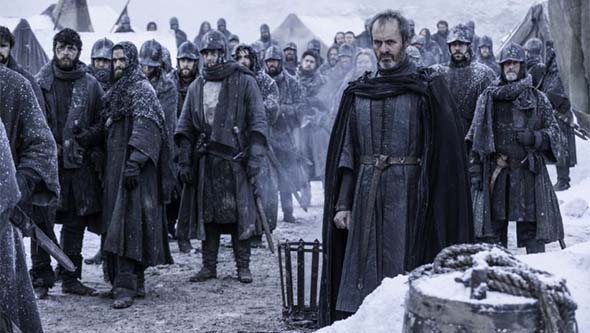
How could anyone follow a man who would do what Stannis has chosen to done?
Stannis cements his doom with quite possibly the worst, and most heartless decision that any character has made in the show to date...
CAUTION: MAJOR SPOILERS AHEAD [More]
9960e026-072e-41f5-a021-7a43834bdc0e|4|5.0
Tags:Game of Thrones, HBO, Home Box Office, streaming television, Iron Throne, Stannis Baratheon, Cersei Lannister, Daenerys Targaryen, John Snow, Arya Stark, Jamie Lannister, Ellaria Sand, Ramsey Bolton, Margaery Tyrell, High Sparrow, White Walkers
|

| 12 | | | | | | | 60 | | 11 | | | | | | | 55 | | 10 | | | | | | | 50 | | 09 | | | | | | | 45 | | 08 | | | | | | | 40 | | 07 | | | | | | | 35 | | 06 | | | | | | | 30 | | 05 | | | | | | | 25 | | 04 | | | | | | | 20 | | 03 | | | | | | | 15 | | 02 | | | | | | | 10 | | 01 | | | | | | | 05 |
|